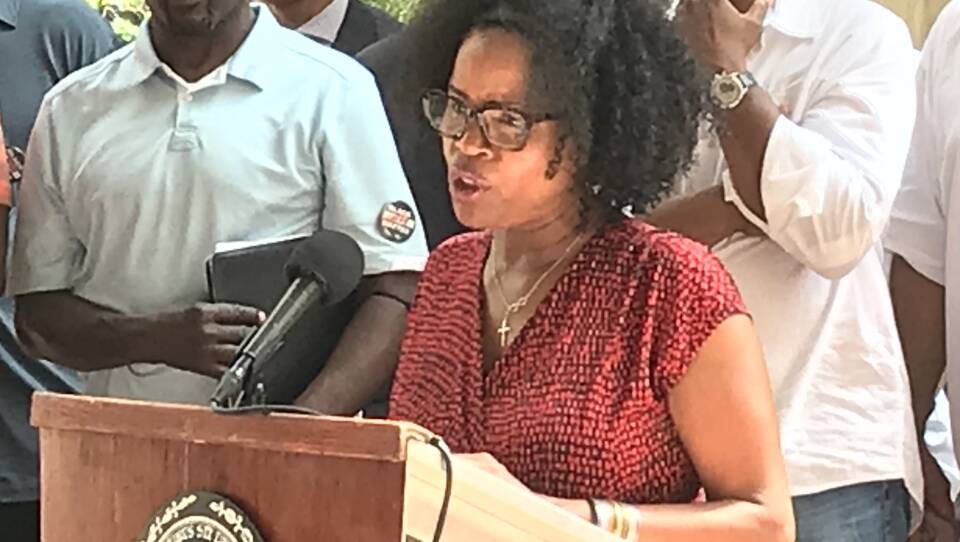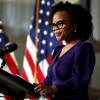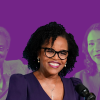At a midafternoon event on a scorching-hot City Hall Plaza Tuesday, former city councilor and mayoral candidate Tito Jackson announced the formation of the Boston Black Men’s Committee, saying the group would push for more civic engagement, increased economic and educational opportunities, assistance for previously incarcerated individuals and greater attentiveness to mental-health concerns in the run-up to the 2021 city elections.
"We are here to be heard. Our votes are here to be felt. And our impact is also here to be felt,” Jackson said.
“At the national level… we have a situation where the Voting Rights Act is being blocked,” he added. “Votes are being denied around the country. But they will not be denied here in the city of Boston.”
Another member of the newly formed committee, voting-rights activist Ron Bell, decried national efforts aimed at restricting the right to vote, and said the committee would work to register 20,000 Black voters before this fall's election — while giving them a crash course in civics.
“Part of that effort will be provided by voter-education materials, with information related to election candidates, government departments and how they function, ballots and mail-in options, available resources for citizens and procedures for contacting local officials,” Bell said.
Kim Janey, Boston’s acting mayor, also spoke at the event, after Jackson introduced her as a “historic figure” and a “historic partner.” She praised the committee for tackling an “important issue” and reiterated her call to address racial inequities exacerbated by COVID-19 and that received increased attention as Black Lives Matter protests swept the country.
“We know that the fight for racial justice was here long before the murder of George Floyd, and will continue long after, until we close these gaps,” Janey said.
The event, Janey’s only public appearance Tuesday, was identified on the city’s website as a press conference that would be streamed at 2:30 pm. It was not broadcast online, however, and a mayoral spokesperson directed advance inquiries to Jackson, describing him as the event’s coordinator.
Still, Janey’s participation — and the event’s staging — highlighted the occasionally blurry boundary separating mayoral events from campaign events as Janey seeks to keep the mayor’s job.
Janey, Jackson and the other speakers gave their remarks from a podium emblazoned with the city’s official logo, and Bell prefaced his comments by thanking Janey for finding a shady spot for the gathering. Boston City Councilor Julia Mejia, who is widely considered a political ally of Janey's, joined other leaders standing behind the speakers, but did not offer remarks.
A spokesperson for Boston City Councilor Andrea Campbell, the other Black woman in the mayoral race, said that Campbell was not invited.
Asked if the Black Men’s Committee would endorse a candidate in the Boston mayoral race or assist a candidate in their campaign, Jackson said it would not.
“I want to make it very clear — we are here as a nonpartisan organization,” Jackson said. “Our objective is around those engagement, to make sure that those votes — yeah, they’re going show up, and they’re going to vote for somebody. But when it comes down to it, it is not our organization’s purview to tell folks who to vote for.”
“But when you look at municipal elections in the city of Boston … the real issue is of those who don’t vote,” he added. “And most folks do not participate on the municipal level, and disproportionately, men of color.”
A recent Suffolk University Political Research Center / Boston Globe
poll
showed Janey near the top of the mayoral race weeks before September’s preliminary election, which will narrow the field down to two finalists. Twenty-two percent of likely preliminary voters identified Janey as their first choice, compared to 23 percent who backed City Councilor Michelle Wu. The third-place candidate, City Councilor Annissa Essaibi-George, was backed by 14 percent of likely preliminary voters.







